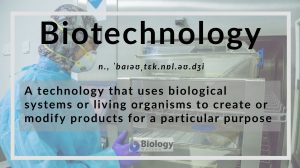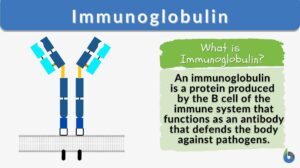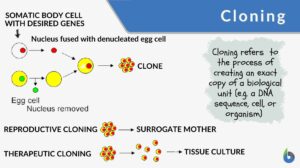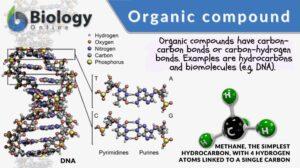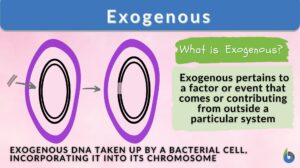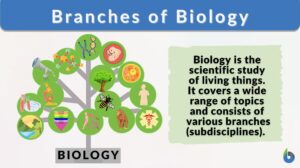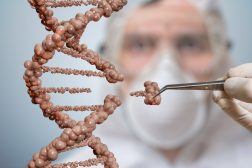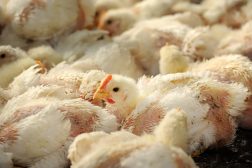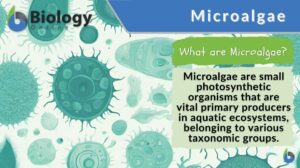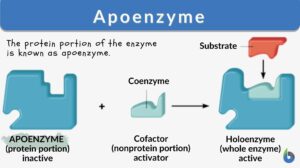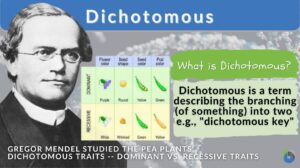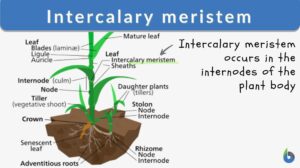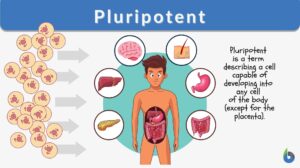Search Results for: biotechnology
Biotechnology
Biotechnology Definition Biotechnology is a technology that uses biological systems or living organisms for a particular... Read More
The Application of Biotechnology to Nutrition: An Overview
Maureen Mackey, PhD, FACN Monsanto Company, St Louis, Missouri Address reprint requests to: Maureen Mackey, PhD,... Read More
Thermophile
Thermophiles Definition What are thermophiles? Let us first understand the literal meaning of the word ‘thermophile’.... Read More
Genetics – Lesson Outline & Worksheets
Topics Modules Quizzes/Worksheets Description Introduction to Genetics Genetics - Definition:... Read More
Biochemistry & Molecular Biology of Plants
Biochemistry & Molecular Biology of Plants ... Read More
Nucleic acid
Nucleic Acid Definition A nucleic acid refers to any of the group of complex compounds consisting of chains of monomers of... Read More
Immunoglobulin
Immunoglobulin Definition An immunoglobulin is a globulin molecule produced by the immune cells, for the body's defense... Read More
Organic compound
Organic Compound Definition An organic compound is a compound that, in general, contains carbon covalently bound to other... Read More
Binary vector
Definition noun Cloning vector that can propagate in both Escherichia coli and Agrobacterium tumefaciens for use in... Read More
Filtration
Filtration Definition What is filtration? Filtration is separating a solid from a fluid through a porous material that... Read More
Y chromosome
Y chromosome Definition The Y chromosome constitutes one member of the pair of sex chromosomes within an organism, a common... Read More
Cell immobilization
Definition noun (biotechnology) A process wherein cells (animal or plant cells) are fixed in a suitable matrix and are used... Read More
Branches of biology
What is a Branch of Biology? A branch of biology is a specialized field or a sub-discipline in a much broader field of... Read More
Calvin cycle
Calvin Cycle Definition The Calvin cycle, also known as the Calvin Benson cycle or the dark reactions, is a series of... Read More
Microbiology
Definition noun The branch of science that deals with microorganisms and their effects on other living... Read More
Genetic Engineering Advantages & Disadvantages
Through genetic engineering, scientists are able to move desirable genes from one plant or animal to another or... Read More
Selective Breeding
Reviewed by: Mary Anne Clark, PhD Thousands of years before Darwin proposed evolution by natural selection and... Read More
Genetics and Evolution
Tutorials in Genetics and Evolution immerse on the molecular aspects and the works of nature that led to what every living... Read More
Euchromatin
Definition noun A slightly packed or partially condensed form of chromatin that contains structural genes and is usually... Read More
Microalgae
Microalgae Definition Microalgae (singular: microalga) are microscopic algal species as opposed to other algae that are... Read More
Gram-positive endospore-forming rods
Gram-Positive Endospore-Forming Rods Definition Gram-positive endospore-forming rods are a group of rod-shaped bacteria... Read More
Human milk oligosaccharide
Definition noun plural: human milk oligosaccharides An oligosaccharide that occurs in high concentrations and exclusively... Read More
Dichotomous
Several English words are widely used across different fields of Science. One such term is dichotomous. We often use this... Read More
Cell theory
What Is Cell Theory? Biological cell theory explains the idea of organismal constitution, structure, and function. It... Read More
Pioneer species
You might have come across news of some barren lands turning into luscious grasslands or forests after decades? Or you might... Read More
Intercalary meristem
The basic structural framework of plants is composed of different types of tissues. Based upon the capacity to divide, the... Read More
Pluripotent
Pluripotent Definition What is pluripotent? In biology, the term "pluripotent" means capable of developing into... Read More
Totipotent
Totipotent Definition What is totipotent? In general terms, totipotency is defined as the ability of a single cell to... Read More
Recombinant DNA
Definition noun Genetically-engineered DNA molecule formed by splicing fragments of DNA from a different source or from... Read More
Group translocation
Group Translocation Definition Just like your “home” is a private place where you and your comfort are maintained due... Read More
At Home in the Universe: The Search for the Laws of Self-Organization and Complexity
At Home in the Universe: The Search for the Laws of Self-Organization and Complexity ... Read More
